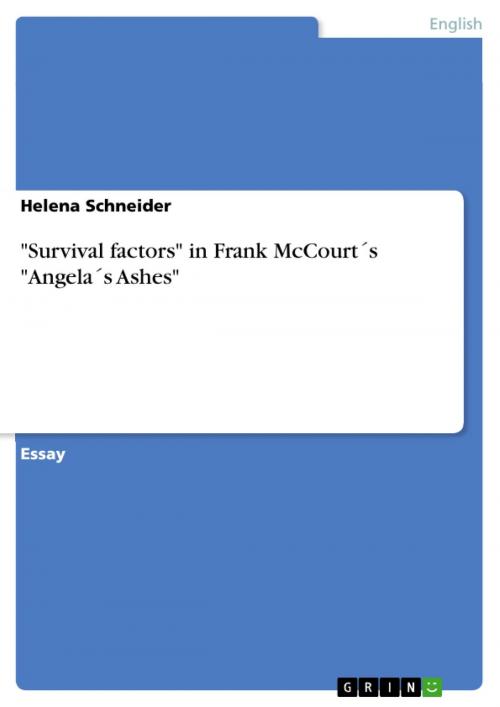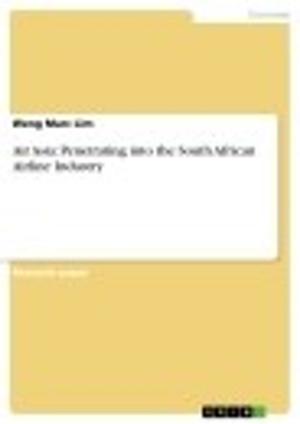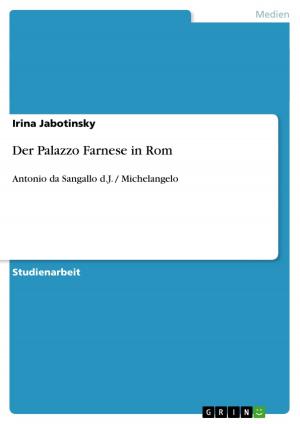'Survival factors' in Frank McCourt´s 'Angela´s Ashes'
Fiction & Literature, Literary Theory & Criticism, British| Author: | Helena Schneider | ISBN: | 9783638511728 |
| Publisher: | GRIN Verlag | Publication: | June 20, 2006 |
| Imprint: | GRIN Verlag | Language: | English |
| Author: | Helena Schneider |
| ISBN: | 9783638511728 |
| Publisher: | GRIN Verlag |
| Publication: | June 20, 2006 |
| Imprint: | GRIN Verlag |
| Language: | English |
Essay from the year 2002 in the subject English Language and Literature Studies - Literature, grade: A , Manchester Metropolitan University Business School (Department of Modern Languages), course: Seminar '20th century writing in English' Course: EFL and English Literature, 5 entries in the bibliography, language: English, abstract: 'When I look back on my childhood I wonder how I survived at all. It was, of course, a miserable childhood: the happy childhood is hardly worth your while. Worse than the ordinary miserable childhood is the miserable Irish childhood, and worse yet is the miserable Irish Catholic childhood.' ( p. 1 ) These sentences at the beginning of Angela`s Ashes summarize very briefly what this novel is about: the survival of a miserable Irish Catholic childhood. Indeed this childhood was shaped by a strict religious upbringing, by poverty and starvation, humiliating experiences, diseases and even death. So what does make this story an exception worth to be read? It obviously must have to do something with 'survival'. How come the hero of this story did not go mad like one of his classmate's mother who had regularly been carried to the lunatic asylum? How come he did not resign like his mother permanently desperate over their miserable situation? Why did he not become like his father and many other Irish men described in the book, drinking their wages and singing sad songs about brave soldiers ready to die for Ireland? Was he just lucky or where there any special factors which enabled him to come through the first 19 years of his life? What are the reasons for his pure physical but also mental survival? In this essay I am trying to find possible answers to all the questions raised above by analysing Frank`s relationship to his family, especially to his father and mother, and to other people who played an important role in his life.
Essay from the year 2002 in the subject English Language and Literature Studies - Literature, grade: A , Manchester Metropolitan University Business School (Department of Modern Languages), course: Seminar '20th century writing in English' Course: EFL and English Literature, 5 entries in the bibliography, language: English, abstract: 'When I look back on my childhood I wonder how I survived at all. It was, of course, a miserable childhood: the happy childhood is hardly worth your while. Worse than the ordinary miserable childhood is the miserable Irish childhood, and worse yet is the miserable Irish Catholic childhood.' ( p. 1 ) These sentences at the beginning of Angela`s Ashes summarize very briefly what this novel is about: the survival of a miserable Irish Catholic childhood. Indeed this childhood was shaped by a strict religious upbringing, by poverty and starvation, humiliating experiences, diseases and even death. So what does make this story an exception worth to be read? It obviously must have to do something with 'survival'. How come the hero of this story did not go mad like one of his classmate's mother who had regularly been carried to the lunatic asylum? How come he did not resign like his mother permanently desperate over their miserable situation? Why did he not become like his father and many other Irish men described in the book, drinking their wages and singing sad songs about brave soldiers ready to die for Ireland? Was he just lucky or where there any special factors which enabled him to come through the first 19 years of his life? What are the reasons for his pure physical but also mental survival? In this essay I am trying to find possible answers to all the questions raised above by analysing Frank`s relationship to his family, especially to his father and mother, and to other people who played an important role in his life.















